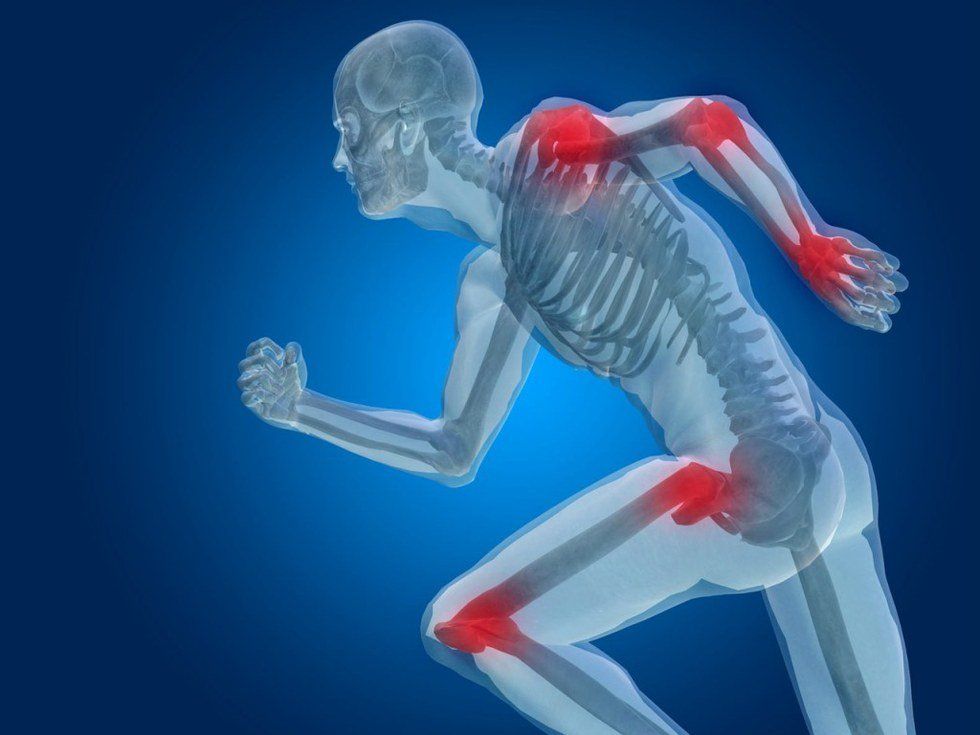Have you ever considered if you're able to connect with your entire body? It seems simple, but most people have at least a few areas that they're unable to control with their mind. One example is, can you move each of your toes individually? Maybe, maybe not. Many people can't because we always wear shoes. Shoes act like a cast on your feet, inhibiting proper connectivity and a full range of motion. For our hands, this would be like if we constantly wore mittens/gloves that limited this range of motion.
Now let's consider the way people walk. Everyone preforms this movement differently because as we grew up and over time, we established a pattern that our body adopted as a norm. Range of motion, movement pattern and muscular connectivity explain why, for instance, some people’s calves are more developed. Also, why some have choppy strides opposed to longer, more fluid strides. It’s even easy to point out when someone looks more in tune with their body. This person will look more natural as they walk. These given points aren’t presented to give you another reason to judge someone, but rather to address yourself. Recognize whether or not you’re in touch with your body. Control is everything in the mental and physical.
As I’ve mentioned in previous articles, the human body is an adaptation machine. It takes the most efficient route to complete a task; unless of course you use your mind to tell it not to. Your body wants to conserve as much energy as possible for more demanding tasks. Anything you do unnaturally, at first, will take more effort/energy. But again, take walking for example. You can walk around the way you always do, unconsciously, without thinking about it. But if you want to change the way that you walk, you’re going to have to consciously think about it until it becomes natural for you. Walking is tough for anyone to change just because its one of the body’s regular functions. Consider if you've ever broken a bone and been casted. The second you start using that part of your body again, it’s not going to feel natural. You’re going to have to consciously retrain yourself to use it how you did initially. The body is very interesting in the way that it adapts. If you decided not to take the time to address your lagging body part, an imbalance will stay with you over time. We will discuss this topic later, but now let's consider how stress impacts one's mobility and range of motion.
We evolved as active beings, traveling, hunting for our food, building, etc. Now it’s the 21st century and most Americans lead a sedentary lifestyle, full of stress. Most Americans take only a few thousand steps a day with no exercise. Even college students like myself go the basically an entire day, doing homework and moving very little. This inactivity is often paired with stress from your job/school work. So where does the stress go? Few realize that this stress is displaced throughout your entire body, but often near your neck. Your central nervous system, responsible for controlling the nerve tissues throughout your body, cannot decipher the difference between physical and mental stresses it encounters. When you go work out and you feel tired afterwards, it’s because you’ve slightly taxed your central nervous system. When you’ve been doing homework all day or took a long test and you feel wiped out, that too has had an impact on your CNS. Because we experience so much stress, people think that heavy exercise will help relieve their stress; when in fact, it can actually do more damage than good in certain instances. You must seek a balance between the two because too much of both mental and physical, is unattainable. Exposure to stress over time without recognition, may inhibit the body's ability to move at an ideal range of motion. For example, sitting in a chair all day can tighten your hip flexors. Or, if you don't sit up straight, your shoulders and back will become used being rounded forward. Anecdotally speaking, I spend time each day addressing mobility. It has had a significant impact on my workouts and the way I feel. I recommend briefly rolling out with a lacrosse ball/foam roller and supplement that with some stretching each night. You might be thinking, “I don't have time for that”. You have time if you want to feel better, move better and even look better.
I personally believe it’s important for everyone to address their mobility. It’s relatively easy for me to tell if somebody is connected to their body or if they work on their mobility at all. If someone walks as if their legs are stiff, they probably have tight hips or hip flexors. If someone usually drags their feet, they may have tight ankles. If you cannot put your arms straight up above your head without resistance, your shoulders are tight. Everything in your body is connected. To explain, many people think that back pain is created in the back. Sometime it is, but it’s often times a result of tight hip flexors, hamstrings, etc. The point being, take the time to address mobility before it addresses you in the form of injury.
If you lack mobility, you’re going to have a tough time going through a proper range of motion to build muscle or even move well in the long run. Like I said earlier, your body will take the easiest route possible to complete a movement. If you can’t squat below 90 degrees, don’t add weight until you can and you’ve established good connectivity to your glutes/posterior chain. If you cannot go below 90 degrees, you’re probably not recruiting the correct set of muscles for that movement anyways. Full range of motion and contraction are key. A poor range of motion/connectivity over time can lead to muscular imbalances. Imbalances can then lead to injury. Let’s take bench press for example, if you feel it in one pec more than the other, something’s wrong. Many will ignore these hints, and they will only continue to build up. Or, if you’re running on the treadmill and feel a burn primarily in your quads, you may have an imbalance there. Hamstrings should do the work when you’re accelerating, your quads should do the work when you’re decelerating. If this is the case, warm up with some glute bridges or hamstring curls to feel that connection beforehand. Or if you run, and know doing so is uncomfortable for you, don't waste your time. There are plenty of other ways to get results at the gym. Mind-muscle connection in exercise is key. People think that muscles can count reps because you do mentally. Muscle responds to time under tension. Among other things, that’s ultimately why proper motion and concentrating on executing each movement properly is so important. Moving weight symmetrically, and with a full range of motion is what will set you up for long term results in exercise.
Taking the time to address stress in your life is not only important for your health and wellness, but also for your longevity and overall happiness. Lastly, in the gym, keep mobility, range of motion and connectivity in mind. Remember, it’s not the quick fix in fitness, it’s long term. Consistently working on these things will change your approach to exercise.





















